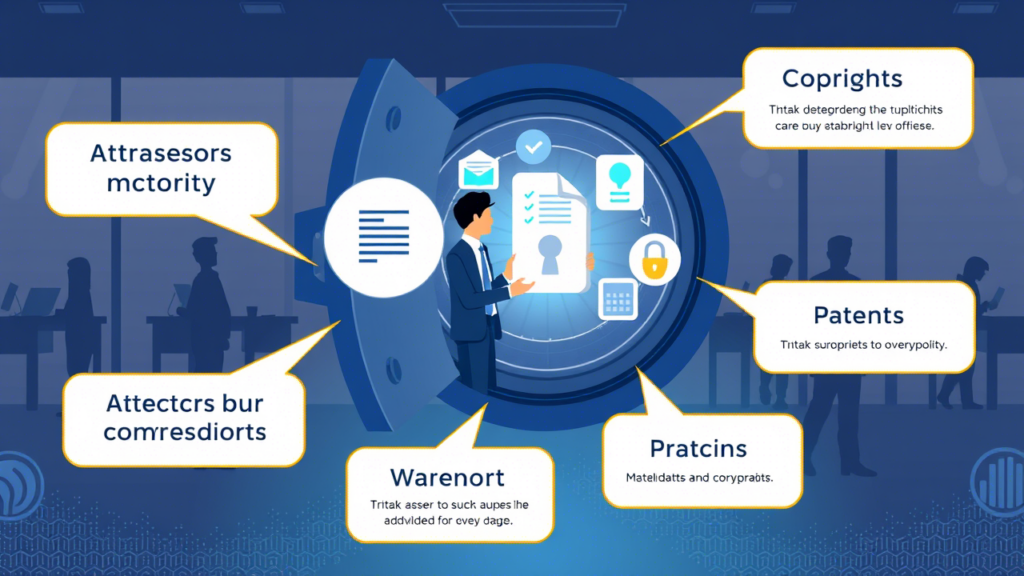1. Choose the Right Business Structure
Why It Matters:
Your business structure affects your taxes, liability, and even your ability to raise funds.
Action Steps:
- Evaluate Options: Consider forming a Limited Liability Company (LLC), corporation, or partnership based on your business goals and risk tolerance.
- Consult an Expert: Speak with a business attorney or accountant to determine the best structure for your startup.
2. Protect Your Intellectual Property (IP)
Why It Matters:
Your ideas, brand, and innovations are your competitive edge. Protecting them legally ensures that you maintain control and prevent unauthorized use.
Action Steps:
- Register Trademarks: Secure your company name, logo, and slogans through trademark registration.
- File for Patents: If your startup involves unique inventions or processes, consider filing a patent.
- Safeguard Trade Secrets: Use non-disclosure agreements (NDAs) when discussing sensitive information with employees, partners, or potential investors.
3. Draft Solid Contracts and Agreements
Why It Matters:
Clear contracts minimize misunderstandings and protect your interests in business relationships.
Action Steps:
- Create Founders’ Agreements: Outline roles, responsibilities, equity splits, and dispute resolution methods among co-founders.
- Establish Employment Contracts: Define job roles, confidentiality expectations, and intellectual property ownership for employees.
- Engage Legal Counsel: Have an attorney review key agreements to ensure they comply with applicable laws and serve your startup’s best interests.
4. Understand and Comply with Regulatory Requirements
Why It Matters:
Non-compliance with federal, state, or local laws can lead to hefty fines and legal troubles that disrupt your operations.
Action Steps:
- Research Industry Regulations: Identify any licenses, permits, or certifications required for your business.
- Stay Updated: Regularly review regulatory changes that could impact your startup.
- Implement Compliance Measures: Develop internal policies and procedures to ensure ongoing adherence to relevant laws.
5. Develop a Comprehensive Privacy Policy
Why It Matters:
Handling customer data responsibly is not only good business practice—it’s often a legal requirement.
Action Steps:
- Draft a Privacy Policy: Clearly outline how you collect, store, and use customer information.
- Follow Data Protection Laws: Comply with regulations like the GDPR or CCPA if you operate internationally or collect data from residents in those regions.
- Secure Your Data: Invest in cybersecurity measures to protect sensitive information and prevent breaches.
6. Plan for Dispute Resolution
Why It Matters:
Legal disputes can be expensive and time-consuming, potentially hindering your startup’s growth.
Action Steps:
- Include Arbitration Clauses: Consider using arbitration or mediation clauses in contracts to resolve disputes outside of court.
- Set Clear Policies: Develop internal processes for addressing conflicts, both among employees and with external parties.
- Consult Legal Counsel: Have a lawyer help you draft dispute resolution clauses that align with your business needs.



Leave a Reply